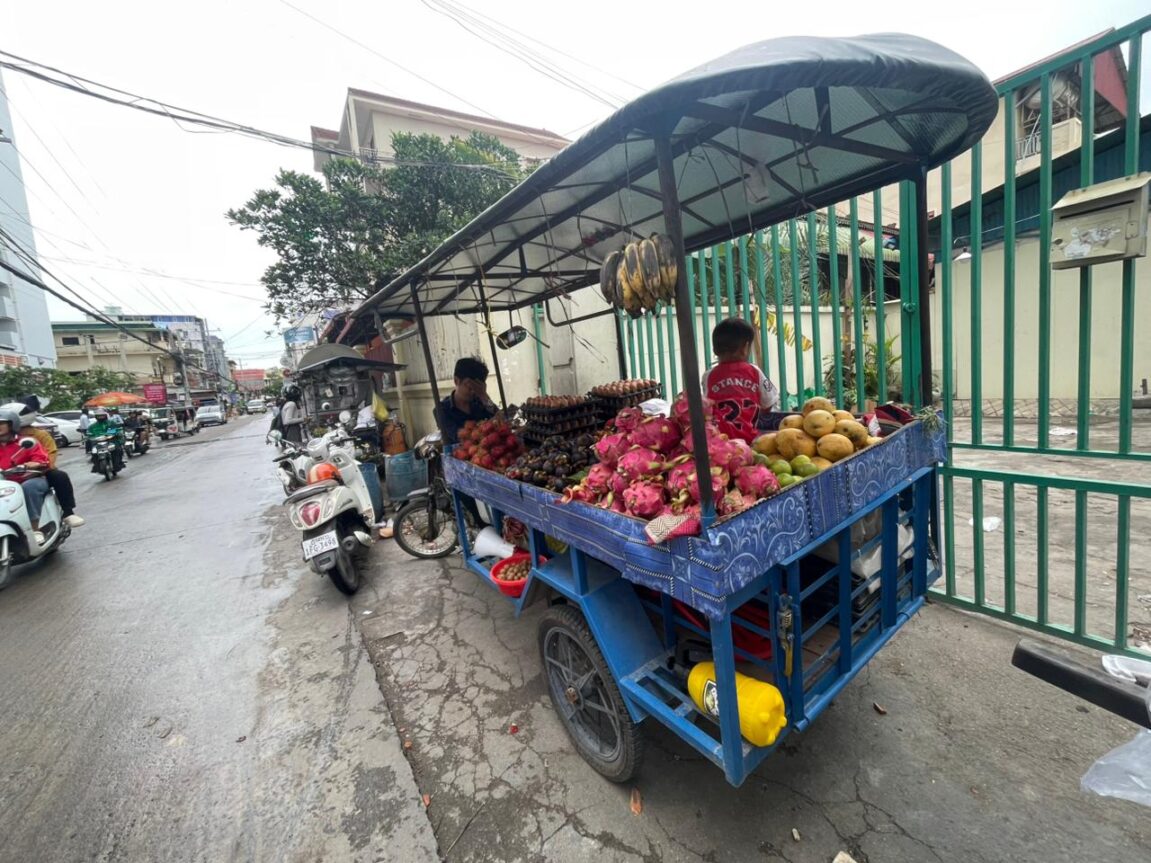Subscribe to our E-Letter!
Subscribe to our e-mail and stay up-to-date with news and resources from street vendors around the world.
This interview (and the attached pictures) has been taken and edited by Sophal Ken, regional communicator for Asia.
“My name is Nob Savy, I am 72 years old. I’ve been a street vendor for 15 years, selling in front of a garment factory in Phnom Penh. After I had a traffic accident, I started selling mixed fruits near the Nakava condo instead.
Because of the accident, I injured my leg and couldn’t continue selling. I asked my son to quit his factory job and buy a motorbike to sell fruit in my place, because we were very poor. On a normal day, I used to earn about 20 USD. On Buddhist holidays, when people bought fruit for offerings, I could make up to 25 USD. But every day, I had to spend 5 USD just to repay the debt I took out to buy my vending supplies.
Now I rent a room in Phnom Penh and live with a chronic illness that requires monthly medical treatment. Doctors often discriminate against me because I don’t have money. I spend around 25 USD each month for hospital visits and medicine. My son helps cover these costs, but I still try to sell whenever I can, to support myself and save a little.

I don’t have access to the National Social Security Fund (NSSF) because I’m over 60, and the government doesn’t allow people my age to register. Even if I wanted to contribute and pay the fees, I’m not eligible. I ask the government to reconsider this rule—elderly people also need access to healthcare, and I’m willing to pay contributions if they let me join the system.
When I had the accident at the market, I broke my leg and shoulder. During my recovery, I didn’t receive any help from the government. But the union, IDEA, raised money from its members to support me and gave me rice for some time. I’m very grateful to IDEA for that, especially since the government offered no support.
That time was extremely difficult. I couldn’t sell, and I had to spend money on medicine. My son’s factory job didn’t earn enough to cover our expenses. I couldn’t pay rent, and the landlord forced me to move out. I found a smaller, more affordable room.
I want the government to pay attention to those who are truly poor. If we could afford small stalls, we wouldn’t have to sell on the streets anymore.”
Listen to the video version of the interview below:

By entering your personal data and clicking “Suscribe,” you agree that this form will be processed in accordance with our privacy policy. If you checked one of the boxes above, you also agree to receive updates from the StreetNet International about our work